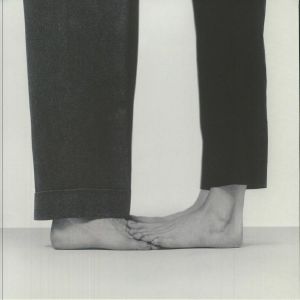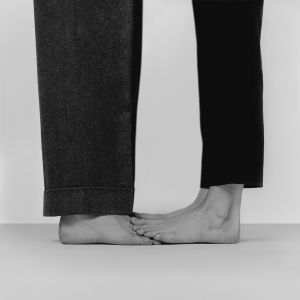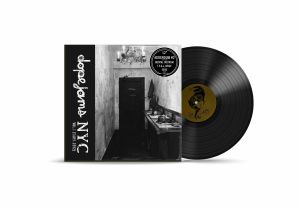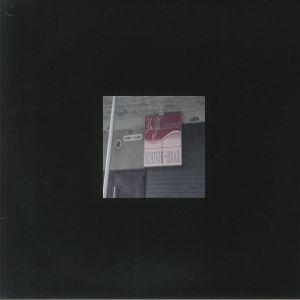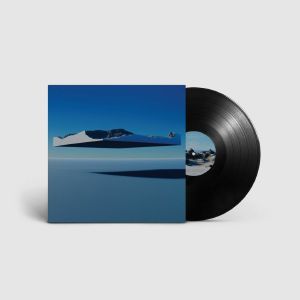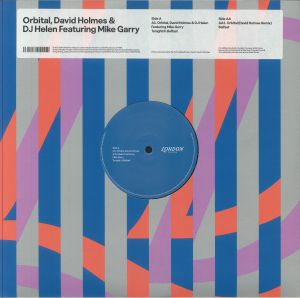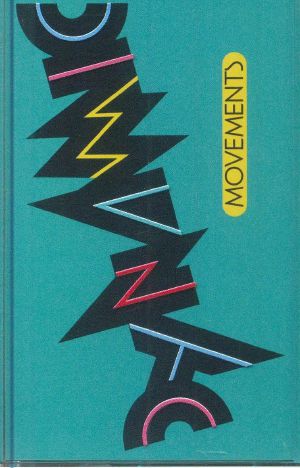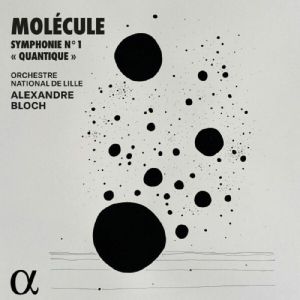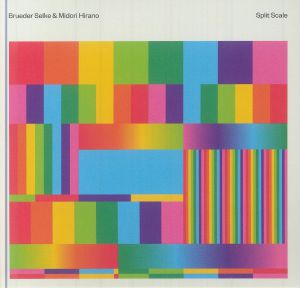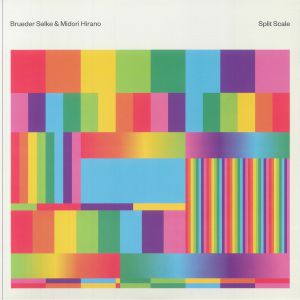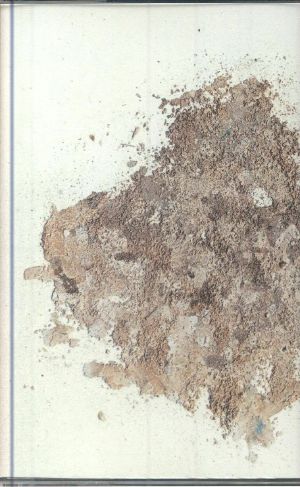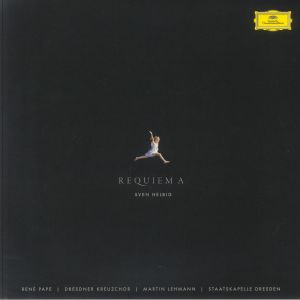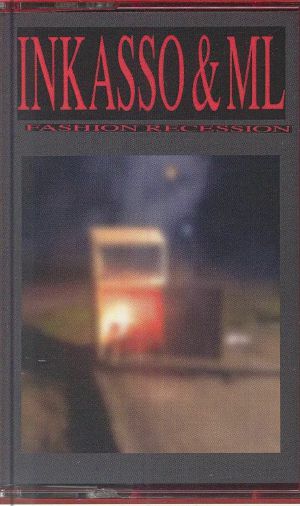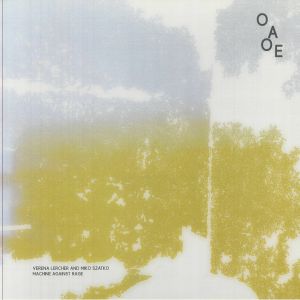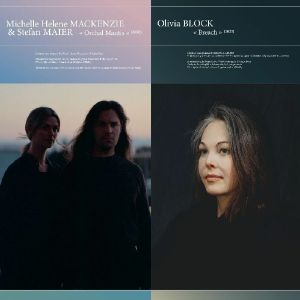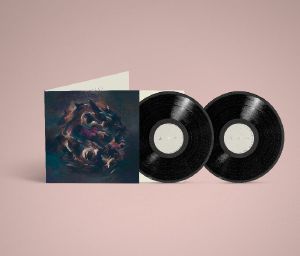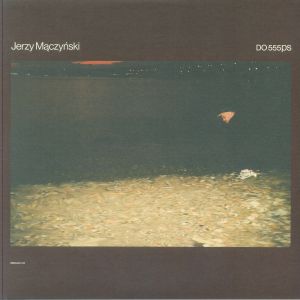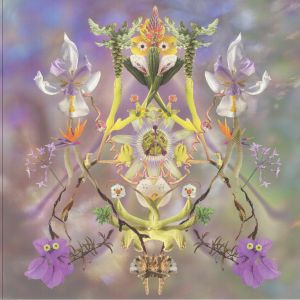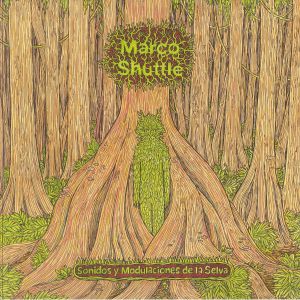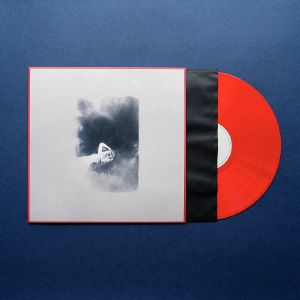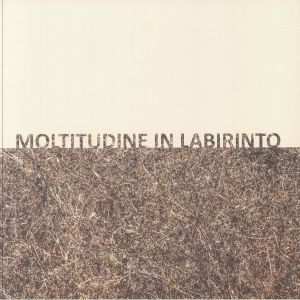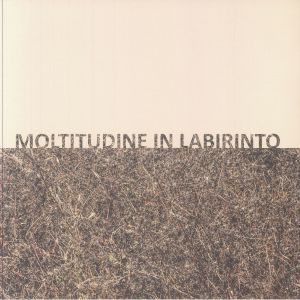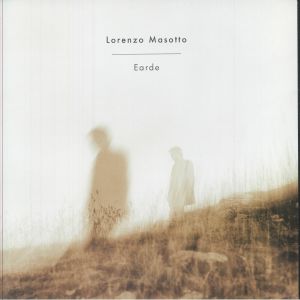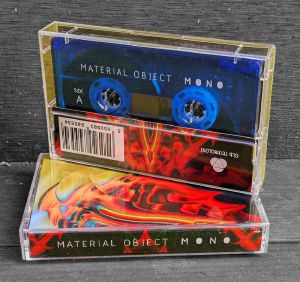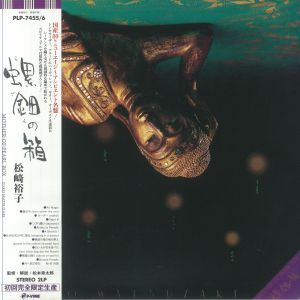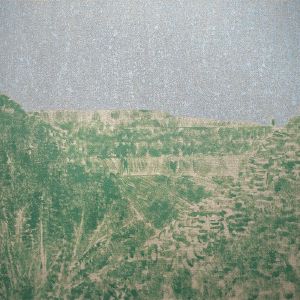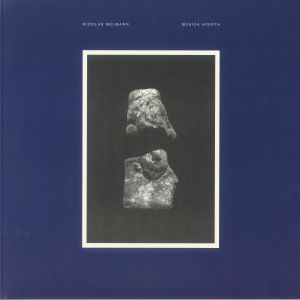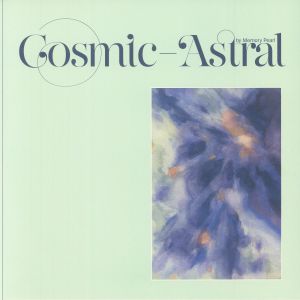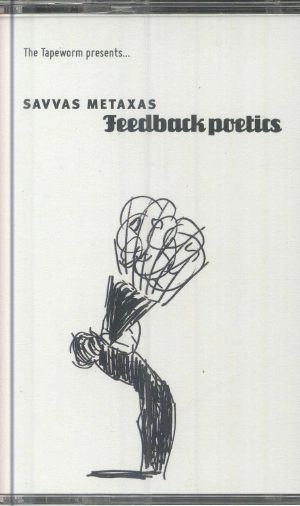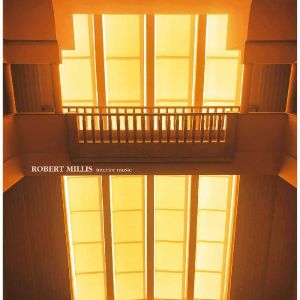Filter
Genre
Stock
Artist
Featured
Release Title
Price
Tags
Back catalogue: All genres
Juno's full catalogue of All genres
Singles
Hand To Mouth (B-STOCK) (12")
Cat: LP 1361 (B-STOCK). Rel: 01 Jan 90
Modern Classical
B-STOCK: Sleeve torn but otherwise in excellent condition
in stock $16.52
in stock $18.76
Cat: DJ 579. Rel: 15 May 25
Deep House
in stock $24.63
Hotel D'amour (12" + insert + postcard + MP3 download code)
Cat: TAX 12015. Rel: 03 Apr 25
Ambient/Drone
in stock $17.91
Intérprete: Alexis Le-Tan
! low stock $27.16
Review: New York-based minimal electronica artist Brendon Moeller takes cues from drum & bass and lowercase on his latest record for ESP Institute. Like a sonic Hockney painting, just six generous tracks span a curtly two sides on 12", as classy deluges marry with designer percs, conspiring to make a large but radially controlled splash. Every experiential stylistic base Moeller has passed so far, such as IDM or ambient dub, is revisited and checked off, and combined to form a wet emulsion here. 'Vibrations', the highlight of ours, pays special attention to fricative, stimulant audio-exploits in the sound design, with its synthetic mid-claves and potent rubber basses sounding like the reflex responses it predicts and expects from us. No wonder ESP liken the entire record to one big tingling sensation.
… Read moreIntérprete: Owain Kimber (Owain K)
in stock $18.48
Review: This six-track release from the Musci archives offers up sounds that blend traditional instruments with synthesisers and electronics. It comes with remixes by Cut Hands and Nokuit and highlights the work of Roberto Musci, an Italian ethnomusicologist who has been active since the mid-80s. Musci's music gained renewed interest following the 2016 Tower of Silence compilation and got praise from legends like the late Ryuichi Sakamoto. It's dense, challenging, and unlike much else you will hear this year.
… Read more in stock $43.66
Review: Poet, librarian, Mancunian, father, husband, uncle, brother. Mike Garry is many things to many people, but tonight, Matthew, his voices guides our eyes upwards, inviting us to stargaze to one of Orbital's most emotionally resonant and timeless pieces of rave noise. Belfast Revisited would be one way to describe it, taking some of the classic and unmistakable elements of that anthem and turning it into something new. First and foremost freshness comes with the spoken word addition - a thoroughly positive, passionate and amorous declaration of unending love that could feel jarring depending on whether you always felt 'Belfast' was reflective and slightly melancholy, or not. Gone too are the breaks, replaced now by stadium-sized four-to-the-floor turning what was once the end of the night walking home at dawn into something that sounds way more 11PM at the concert.
… Read more in stock $18.76
Álbumes
Dynamic Movements: Music For Exercise & Relaxation (cassette limited to 200 copies)
Cat: LO 244T. Rel: 31 Jan 25
Disco/Reediciones
in stock $13.43
in stock $24.08
Cat: ALPHA 1082. Rel: 11 Apr 25
Modern Classical
in stock $15.40
World Of Warcraft: The Burning Crusade (Soundtrack) (gatefold 'burning legion' purple vinyl 2xLP)
Cat: 8BIT 82114. Rel: 10 Jan 25
Soundtracks
in stock $58.23
in stock $10.62
in stock $31.92
in stock $13.43
Doctor Who: The Daleks In Colour (Soundtrack) (gatefold translucent blue & claret vinyl 2xLP with obi-strip)
Cat: SILLP 1760. Rel: 25 Feb 25
Soundtracks
Inside The City (2) (Soundtrack version - Radiation Poisoning/The Daleks/The Cell/Interrogation) (7:24)
in stock $52.36
in stock $14.00
in stock $32.76
in stock $14.55
in stock $20.72
Orchid Mantis/Breach (LP + MP3 download code)
Cat: SPGRM 013LP. Rel: 15 May 25
Experimental/Electronic
in stock $23.50
in stock $31.35
in stock $24.08
in stock $42.28
Review: Kali Malone's The Sacrificial Code stands tall, meditating on the perception of time through the pipe organ. Originally released in 2019, the album was shaped by Malone's engagement with tuning systems, electroacoustic composition, and Sweden's experimental music scene. Following her apprenticeship with organ tuner Jan Borjeson, she embraced historical temperaments and archaic compositional forms, stripping them down to their starkest essence. Now reissued by Ideologic Organ, this 2025 edition features a newly recorded 'Sacrificial Code III,' captured on the 16th-century meantone organ at Malmo Konstmuseum. Malone's meticulous recording process, from close-micing techniques to the spatial placement of sound, enhances the organ's physical presence, creating an immersive, time-dilating effect. Each chord resounds with the breath of the instrument, as the record's restrained grandeur invites listeners into an amorphous, time-bending experience.
… Read more in stock $14.55
Review: Kali Malone's The Sacrificial Code stands as a defining work of 21st Century minimalism, shaped by years of intensive study. Originally released in 2019, the album emerged from her time at Stockholm's Royal College of Music, where she explored sound, space, and alternate tuning systems under the guidance of organ tuner Jan Borjeson. Stripping composition down to its starkest form, she embraced canons and slow-moving harmonic shifts, slowly but surely stepping into a sound emphasising monumentality. Now, six years later, The Sacrificial Code is reissued via Ideologic Organ, featuring a new 2023 recording of the title track on a 16th-century organ. Malone's self-taught recording techniques bring out the instrument's spirant resonance, creating a time-dilating sound. Less mournful, more tranquil, the new version mirrors the concurrent transformations of music and listeners in step, over time.
… Read moreIntérprete: Juno Recommends Leftfield, Juno Recommends Ambient/Drone
in stock $37.52
Sonidos Y Modulaciones De La Selva (180 gram vinyl LP + insert)
Cat: AI 39. Rel: 11 Mar 25
Ambient/Drone
Review: Italian-born, German-based Marco Shuttle's first release on Astral Industries is built from field recordings taken in Colombia's Tupana Aru U nature reserve. Blending organic sounds with electronic manipulation, it captures the essence of the rainforest through both natural and synthetic elements. 'Part one' layers distant wildlife, dripping humidity and low-end pulses, while Part two shifts into abstract territory with reverberating echoes and shadowy percussive patterns. A final spoken passage from an indigenous guide provides context, grounding the work in real-world experience. The release offers a sonic study of a disappearing ecosystem, with proceeds supporting Amazon Watch. Shuttle shapes the sounds of the rainforest into something urgent and thought-provoking.
… Read more in stock $29.40
Review: Marie Guerin, or maybe you know her as Marie de la Nuit, is a sound artist who has explored field recordings, radio archives and "hertzian ghosts" for almost a quarter of a century since her debut in 2001. Her work blends voices, textures and ambient sounds that examine sound heritage and its preservation. Transportees is an electroacoustic composition that connects archaic and electronic trance and in doing so weaves a musical thread from Brittany to Tunisia. It follows a trance-like journey through recordings and oral traditions, all rooted in Guerin's passion for archives. The album reflects her fascination with capturing and preserving songs and transforming them into a soundscape that bridges past and present.
… Read more in stock $26.86
Iskra (red vinyl LP + MP3 download code limited to 300 copies)
Cat: MIALP 060. Rel: 23 Jan 25
Ambient/Drone
Review: Starting at 'Dawn' and closing on 'Dusk', this is the arrestingly cyclical debut record from Polish multi-instrumentalist and composer Olga Anna Markowska. Deploying zither, cello, electronics and occasional wordless etheric voice, Markowska makes a slow work of the ethereal idiom, threshing her inspirations from a desire to "reconnect with (the cello), an instrument I've known intimately since childhood." For unexplained reasons, Markowska had to take time away from said extra luthier's limb for a limbo period of two years, in which new breathing space for creativity was to be found. The intense lulls and drastic highs heard here are a testament to this theme of reignition.
… Read more in stock $33.32
in stock $10.36
The Neon Demon (Soundtrack) (limited gatefold pink blue & purple splattered vinyl 2xLP)
Cat: LPRGM 1828C. Rel: 13 Mar 25
Soundtracks
Review: Cliff Martinez's soundtrack is a full realised musical world that is defined by eerie synths and pulsating rhythms, all of which perfectly capture The Neon Demon hypnotic and unsettling atmosphere. Martinez is well known for his work on Drive and Only God Forgives and here once more delivers a score that is both haunting and seductive while mirroring the neon-lit world of fashion and obsession. The soundtrack weaves dreamy, ambient textures with dark, throbbing electronic undercurrents that draw you in and highlights include 'Neon Demon' and 'Mine' which pulse with icy beauty and mean this one stands as one of Martinez's most evocative and chilling compositions.
… Read more in stock $53.47
Cat: SPS 2482. Rel: 13 Dec 24
Ambient/Drone
Review: The reissue of Moltitudine in labirinto, originally released in 2003, is a profound sonic exploration by ambient pioneer Gigi Masin and electronic artist Giuseppe Caprioli. This album merges Masin's signature subtle minimalism with Caprioli's raw electronic textures, crafting an intense and introspective experience. Moltitudine in labirinto draws listeners into a maze of sound that evokes hidden corners of the psyche, with low-frequency drones and looping motifs guiding the journey. Across nine movements, Masin and Caprioli create a cinematic symphony that feels simultaneously vast and deeply personal, channeling a 'harmony of the spheres' through restrained yet emotionally powerful soundscapes. The intricate structure and fluidity reflect a complex inner world, making each listening experience unique and meditative. For long-time fans, this vinyl reissue is a welcome revival of a work that remains a cornerstone of ambient and electronic music. Moltitudine in labirinto stands as both a historical document and a timeless exploration of ambient's expressive potential, an artful encounter of melodic finesse and electronic depth that feels as relevant and poignant today as it did upon its original release.
… Read more in stock $24.63
Moltitudine In Labirinto (clear vinyl LP + hand-numbered insert limited to 200 copies)
Cat: SPS 2482C. Rel: 13 Dec 24
Ambient/Drone
Review: This EP weaves a labyrinth of sound, where the absence of clear genre boundaries is the only constant. The opener leads with ambient pulses, before shifting into the hypnotic, bass-heavy swells of 'Infrasound Loop,' as if crossing into a parallel dimension. As it unravels, 'Submerged Reactions' builds a wave of evolving textures, quietly oscillating between glitchy abstractions and weighty drones. Throughout, the artists' mastery of subtle, complex layers remains apparent, each track a gradual immersion into its own sonic world. On clear vinyl, it's an intricate, immersive listen-complex yet fluid, intricate yet accessible, making it easy to lose yourself in the flow.
… Read more in stock $30.80
Intérprete: Juno Recommends Ambient/Drone
in stock $26.31
Review: Lorenzo Masotto is an Italian pianist and composer from a village near Verona who studied at the Conservatory F.E. Dall'Abaco and the Hochschule fur Musik Franz Liszt in Weimar. His music now returns to Whitelabrecs with his new album Earde which is inspired by the landscapes surrounding his hometown in Northern Italy and reflects the beauty of local nature and Masotto's travels through Iceland and the Dolomites. Recorded in a deconsecrated church to capture its natural acoustics, the album explores the deep connection between place, memory and creativity which gives rise to a meditative, harmonic experience.
… Read more in stock $30.22
in stock $9.51
in stock $38.92
Dance Of Spirits
Spanish Rain
Miracle Parade
Love That Flies To The Moon
in stock $52.63
in stock $21.27
Mad Max 2: The Road Warrior (Soundtrack) (limited gatefold translucent amber vinyl LP)
Cat: SILLP 1559O. Rel: 15 Apr 25
Soundtracks
in stock $36.39
Alternate Moon Cycles (AI11 Edition) (LP + booklet with obi-strip)
Cat: IARC 1LP11. Rel: 27 Mar 25
Ambient/Drone
Review: The first ever release on the International Anthem label came by way of Rob Mazurek, genius musician of of the Jersey and Chicago jazz "schools". The trumpeter and multi-instrumentalist turned ever more avant-garde on this two-suite album, which was dedicated to the lunar cycle and heard him forgoing his signature brass for a monophonic cornet experiment, recorded at Chicago bar Curio. Documenting the performance, which was delivered alongside Matthew Lux on electric bass and Patrick Avery on organ, IA transport us right on back into the room with the trio, letting us in on a real-live experience of sidereal drones, selene harmonics and waning delays, paradoxically featuring in a suite which, both of whose titles suggest, always waxes crescent.
… Read more in stock $21.01
Review: Buenos Aires-born but now based in Barcelona, Nicolas Melmann explores sound's social and poetic dimensions through what he calls "transdisciplinary projects." He is inspired by Erik Satie's "furniture music" and his compositions create spaces of calm and contemplation as evidenced here on this lovely new blue LP. Musica Aperta blends acoustic and electronic elements with rich harmonies where soft textures meet delicate raspiness and it is divided into three parts. Each one slowly immerses you in time while echoing Satie's concept, Arvo Part's minimalism and Phill Niblock's roughness. It is a calming and cathartic escape from the fast-paced of modern life.
… Read more in stock $29.40
Review: Moshe Fisher-Rozenberg returns to Altin Village & Mine with Cosmic-Astral, his second album as Memory Pearl. Inspired by a 1970s psychotherapeutic music program used alongside LSD, he reimagines its classical compositions through electronic manipulation and using MIDI transformations of works by Strauss and Scriabi. He crafts new landscapes enriched by improvisations from Sam Prekop, Joseph Shabason and others and, as a psychotherapist and musician, he blends that expertise with musical creativity to shape a delicate trip across nine tracks that form a pathway to sonic healing.
… Read more in stock $28.28
in stock $26.04
in stock $9.80
Pre Country (limited transparent lilac vinyl LP + poster)
Cat: MTR 017LP. Rel: 18 Feb 25
Ambient/Drone
Review: French-British singer-songwriter and performance artist Lucy Sissy Miller opens Pre Country with noises that don't feel remotely close to country - more Imogen Heap than Patsy Cline. But as the record finds its gear, reference are changed through a moody and mysterious veil of latter-day Patti Smith and the oeuvre of Laurie Anderson. A meditation on Americana which recognises its folk roots but isn't afraid to embrace the high tech of today, either. Pieced together using journal notes, poems, voice memos, found and collected, manipulated and obscured sounds, it's a reflective and quiet, tender kind of place to find yourself - a record that asks for patience and rewards you with increasing immersion. "It'a an album about memories and how we stitch up these moments, making them movie-like to make sense of these experiences," says Miller. We'll leave it at that.
… Read more in stock $26.04
in stock $23.80
Review: Abdullah Miniawy is an artist who knows no boundaries and has expanded from writing to multi-instrumental composition, video game programming and 3D scanning. By blending music, visuals and technology, his work challenges artistic and political boundaries and his latest project, Nigma Enigma, explores existential and spiritual themes while weaving poetic storytelling through his music. The album was produced by Hundebiss Records and introduces English and Italian lyrics inspired by mythology and personal experiences. Miniawy's work transcends the usual stereotypes and finds plenty of pure expression which means he can use it as a powerful medium for exploring identity, belief and human connection across cultures.
… Read more in stock $24.08
Cat: MYUCLP 001. Rel: 14 May 25
Balearic/Downtempo
in stock $41.71
Cat: MYUCLP 002. Rel: 14 May 25
Balearic/Downtempo
in stock $41.71

 USD
USD






